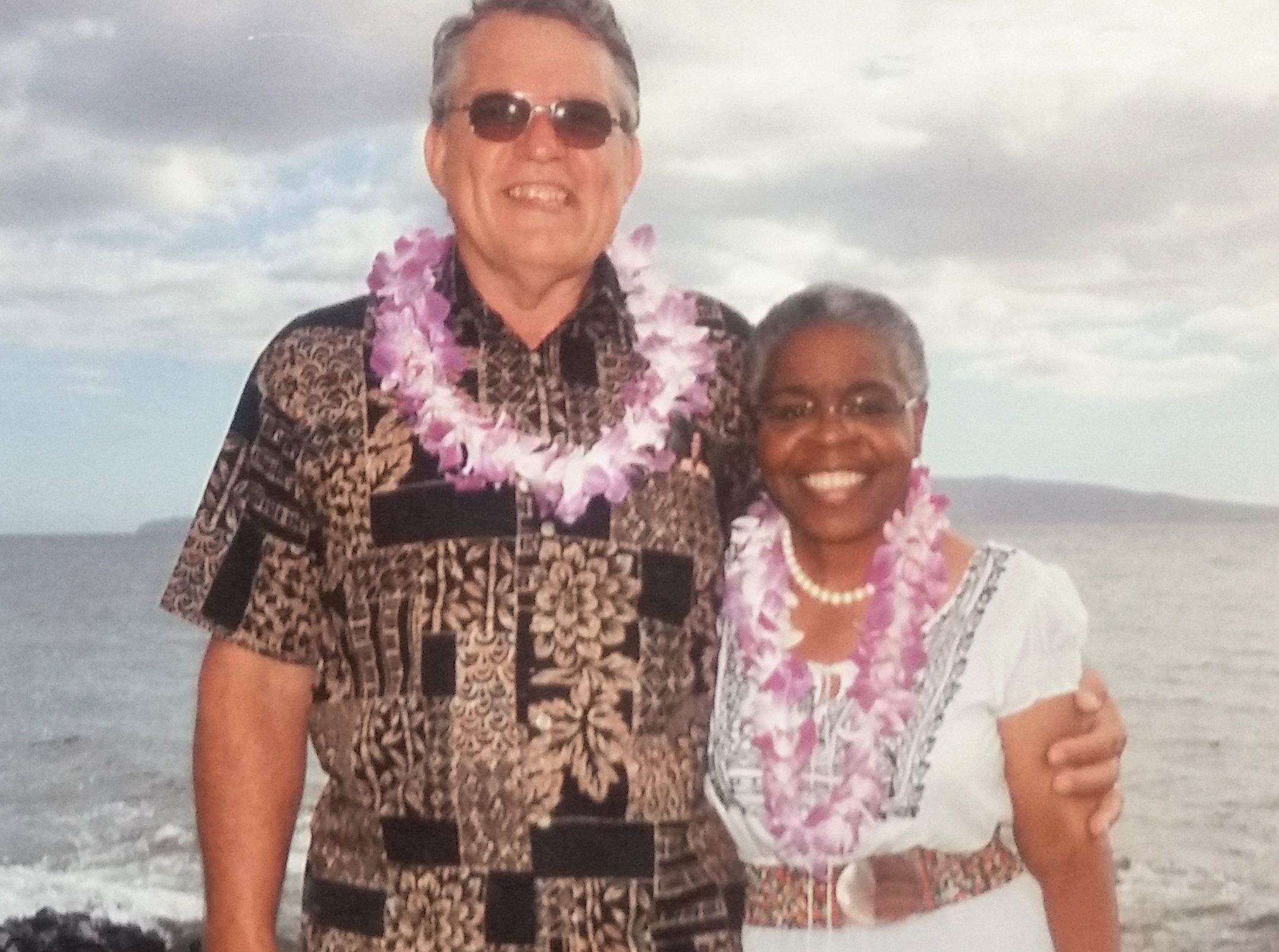Using the definition of talisman as anything whose presence (and by extension, lack of presence) exercises a remarkable or powerful influence on human feelings and actions, I believe that love, by its presence or its absence, is the greatest talisman. This is why it so important that children learn that their parents love them. When people grow up thinking that their parents never loved them, and questioning why not, it will affect their feelings about themselves and their interactions with others for the rest of their lives.
Real love has to be shown, not just spoken, for it to impact feelings and actions in powerful ways, for 1 John 3:18 states, “Dear children, let’s not merely say that we love each other; let us show the truth by our actions.” The story of one of my sons will illustrate this very well.
As many readers know, when I was age 21, I adopted my sister’s four children, ages 2-6, when she died unexpectedly at age 23. They had four different fathers, and over the course of their childhood, not one of the fathers called the children, came to see them, or sent money to provide for them. Living in public housing where so many children had no interactions with their fathers, my children were simply four more fatherless children.
I was married when I adopted them, but I never asked my husband if he wanted to parent the children, believing that he felt the same as I did about the need for the children to be together. But, I was wrong, and, because he felt forced to take on a role he did not want, all he would do is provide materially for them, never hugging them or even talking to them. After three years, he simply said one day that he could not take care of other people’s children any more, and that was the end of the marriage.
I worked hard to let my children know that they were loved, mainly because I remembered the pain I experienced as a love-starved child, as my mother never spoke words of love or even touched me. My father was absent in our lives, never visiting, calling, or sending support for us. I knew that many of the bad decisions and actions I had made, especially regarding romantic relationships, were attempts to find the love that I never had at home.
I did not want my children to endure the same suffering, so I hugged them, I kissed them when I took them to school, I played with them, I took them to the doctor when they were sick, and I told them all the time that they were smart, beautiful, wonderful, and amazing people whom I felt honored to parent. These were all the things I craved as a child, so I made sure that they had what I had missed. But it was not enough!
As they grew into teenagers, they would constantly ask about their fathers. Having not heard from any of them for over three years, I had no idea how to get in touch with them when we moved from my hometown for my work. I was not in touch with them or their families, so I could not tell my children anything about their fathers. It was weird for black grandmothers to not try to see their grandchildren or send them gifts at Christmas, so I was surprised that the fathers’ families did not try to be in their lives.
For one of them, the absence of his father took its toll on his behavior. He would cry and ask me why his father did not love him and why he would not come to see him. I would tell him that I loved him and that it was not anything that he did that made his father stay away. I tried to get him to see that he had value and worth, regardless of his father’s actions.
But, because many of his friends had fathers in their homes and he saw how they were with their sons, he knew that he was missing something or someone who should have been special to him. In his anger at his father, he constantly misbehaved at school, and his fighting became so bad that the school assigned a male teacher to walk him home every day, just to keep him from hurting someone or getting hurt.
Whether one boy or a gang of boys, he would take them all on. Once, I came home and he was changing shoes, and it was apparent to me that he had been on the losing end of a fight. I asked him what he was doing and he told me that he had to change shoes, so that he could go back and find those boys and beat them up. Of course, I told him to sit his backside down before he ended up in the hospital.
Because of his constant misbehaving at school, I had to take off from work on so many occasions to attend parent-teacher conferences, that my supervisor once said to me, “No child can be this bad!” I had to get written notes from the teachers, so that I did not lose my job. Finally, at age 17, I simply allowed him to drop-out of school, as the vice-principal asked me to do, explaining that no one in class was learning anything as my son acted the clown in class.
He told me later when he was in his twenties that he acted up to disguise his inability to understand the material, and he never let me know because he was too ashamed. He told me that these were mechanism he used as ways of being seen, valued, and noticed. Somehow, he came to see any attention as better than not to be paid attention to at all. I wish that I had taken him and his siblings for grief counseling when they were children, as they had lost both mother and father. But, then I did not even know that there was any such thing.
I also wish that I would have had him tested for a learning disability, but it was too late by the time I figured that out. The combination of feeling stupid and unloved simply took its toll on him. Not even taking him to church and having family Bible studies and devotions on God’s love for all of us made a difference. He could not comprehend that there was a Father in heaven who loved him so much, mainly because God was invisible and the idea of father for him was someone who did not love or support his children. Thankfully that has changed, as he is a Christian and a great father and grandfather.
What brought about the change? He finally accepted what I had been telling him for years, that just because his father was not in his life did not mean that he was a bad person, and that he really had a lot of love to give to others. He came to accept that God truly loved him, seeing my presence in their lives as proof of God’s love.
Also, he became a father as a teenager. Loving his child and being loved by his child altered his behavior. I worried that my sons would not be good fathers because they did not have role models in their home, but they all are very good fathers. Today, he is the father of three daughters and has one grandson. One of his daughters recently told me that he is a great father, stating that she always knew that her father loved her and that he was always there for her, even when he had no money to give them. She appreciated his presence and his love.
He tells me that my love for them helped him and his siblings know how to love their own children and the children of the people they dated or married. I am amazed, mainly because I thought that my love had not been enough to sustain them and make them feel valued and of worth. My sons and daughters have given to their children and grandchildren the same love they received. Thankfully, his story has a happy ending.
So, love is a strong talisman, as it the strongest influence on the feelings and actions of others, and there is no substitute for the genuine love and faithfulness of parents. Every child needs to know that they are loved. I am convinced that much of the anger in young people today that leads to so much violence in our society is because of the lack of love experienced in their homes. They are searching for something to fill the void that lack of love causes in our hearts, minds, and spirits. It is up to us as a society to find a way to reach them with the love of God that can change the hearts and behaviors of even the most hardened heart.
Many people wears talismans around their neck, as a symbol of safety against evil, but, I would argue that it is better to wear love around your neck. Proverbs 3: 3 states, “Let love and faithfulness never leave you; bind them around your neck, write them on the tablet of your heart.”
Today, let our love for ourselves and our fellow human beings show in our words and in our deeds. I regularly told my students that we touch the lives of people we meet everyday, and we can impact their lives positively or negatively by our actions or inaction. It means that we need to be careful about everything we say and do to or around others, for even just a smile may change someone’s notion of their value and worth. Sending you God’s love today.


Beautifully written and I especially like the analogy of wearing love around your neck like a talisman.
LikeLiked by 1 person
I hope the new job is going well
LikeLiked by 1 person
I’m glad I have one and that’s all I can say right now. Thank you 🌺
LikeLike
I couldn’t find a good way to use talisman. What a great post! That was beautiful.
LikeLiked by 1 person
THank you so much. Regina
LikeLike
Beautiful words. God bless you. Love is the best tailsman for us all, and yes, of course children. God bless again.
LikeLiked by 1 person
Thank you for a wonderful comment.
LikeLiked by 1 person